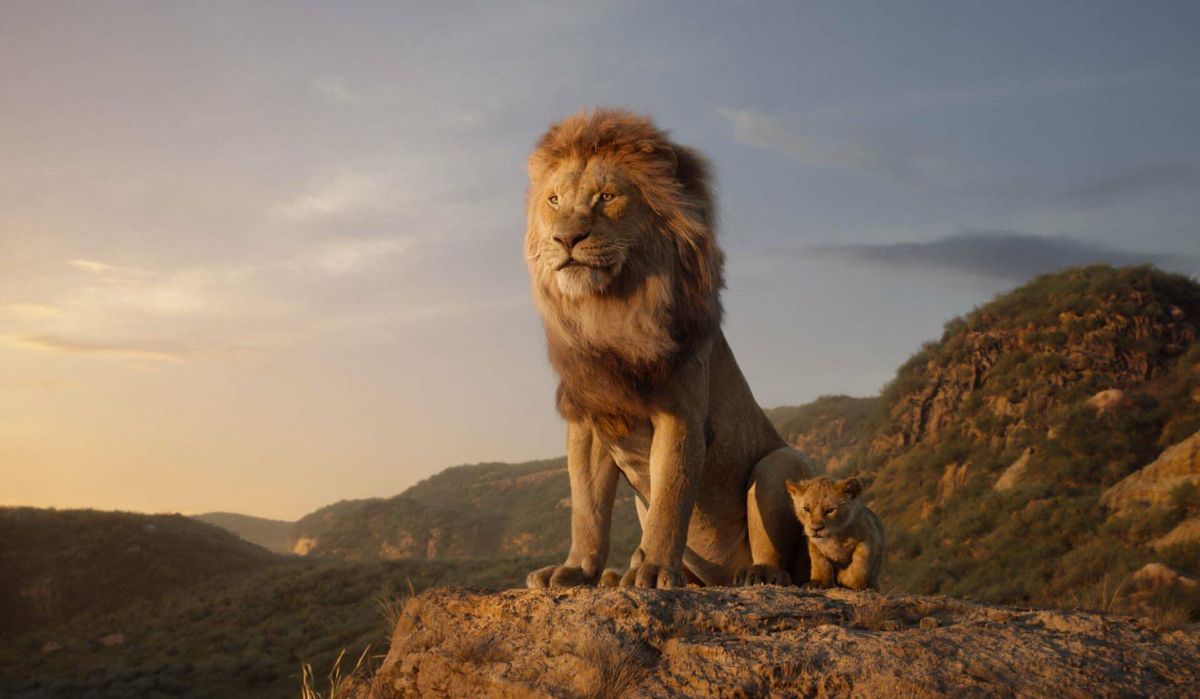Not surprisingly there is an overlap between visual effects veterans choosing their best CGI animals and best CGI characters as the former is a crucial member of the cast in being able to achieve the desired cinematic vision and scope. And let’s face it, there is a Hollywood adage that animals and children are the hardest to direct and for a medium where every nuance counts in suspending the disbelief of the audience members then why not use a computer where every pixel can be precisely controlled?
That being said nothing is achieved for free as everything has to be created from scratch and fur and feathers remain tough simulations to achieve, especially when extra interactive environmental elements like light, dirt, and water have to be added. (No matter how good Houdini gets.)
The cost of achieving such excellence can be a double-edge sword as experienced by visual effects company Rhythm & Hues which won an Oscar for Life of Pi just after filing for bankruptcy and resulted in an infamous Academy Awards moment when the acceptance speech was brought to an unceremonious abrupt end.
Below leading VFX producers, supervisors and artists working in the film industry today reveal the CGI animals and creature designs that inspired them. Some appear in our breakdown of the best VFX films of the 90s, but is your favourite in here too?
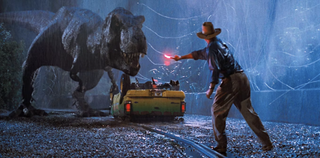
01. Every dinosaur – Jurassic Park (1993), ILM
Considered to be the forerunner of what has become more standard fare nowadays with the release of Prehistoric Planet and Life on Our Planet, Jurassic Park relied on a mixture of practical and digital effects that left a lasting impression on a digital animator and compositor who went onto partner with Ridley Scott on Matchstick Men and Bodies of Lies as a visual effects supervisor.
“I was blown away by the groundbreaking CGI and animatronic dinosaurs from Jurassic Park,” recalls VFX Supervisor Sheena Duggal, who has worked in Venom 2 and Ghostbusters. “While we were working on Super Mario Bros. (1993), the lab accidentally sent us dailies from Jurassic Park. We all crowded around the KEM viewer in awe, having never seen anything like it before.”
Sheena adds: “It’s impossible to discuss CGI animals without mentioning Richard Parker, the tiger from Life of Pi (2012), which is a standout for its photorealistic rendering and emotional depth. The Jungle Book (2016) also set a new bar for realism with its depiction of Shere Khan and other animals.”
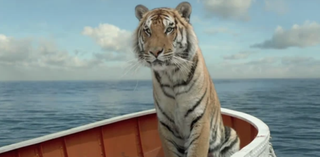
02. Richard Parker – Life of Pi (2012), Rhythm & Hues
“Best CG animals?” ponders Jake Morrison who faced the creative and technical challenge when co-supervising the visual effects work on Jungle Cruise (2021). “It’s a tough call especially since the definition of animal includes dinosaurs – Jurassic Park, I’m looking at you with younger eyes – but I’m also going to factor in the difficulty of nailing fur.
“Realistic animal fur is expected by modern audiences and derided if it’s not perfect. That’s an incredible position to be in and a testament to the amazing craft that has got us there, both technical and artistic. Hats off to all of the folks that worked tirelessly and probably quite tiredly to get us to this level. My pick is going to be the tiger in Life of Pi.
“Whilst there are extraordinary examples of furry creatures everywhere, notably the work on the Planet of the Apes series of films, Life of Pi is a landmark. The tiger didn’t speak. There were no anthropomorphisms at all. It was a Tiger. Close, personal, interacting with a cast member. And when I watched the film, I believed it was a tiger, despite my prior knowledge that it was CG.”
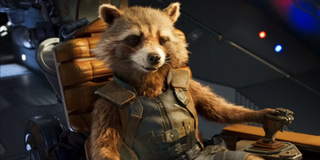
03. Rocket Raccoon – Guardians of the Galaxy franchise (2014, 2017, 2023) Wētā FX, Framestore, and Sony Pictures Imageworks
By combining the voice acting of Bradley Cooper, the onset stand-in performance of his brother Sean Gunn and digital creature expertise of Framestore, James Gunn was able to introduce to the Marvel Cinematic Universe and moviegoers to a gun-toting genetically modified mammal often mistaken to be rodent that is as quick to pull the trigger as he is with his sarcasm.
“Rocket Raccoon from Guardians of the Galaxy is so cute, and probably my favourite action star,” remarks Adrian de Wet who has dealt with his share of action stars whether be digitally assisting them for The Hunger Games or The Meg franchises. “I rate him slightly higher than Jason Statham. Not sure if these count as animals.”
Adrian adds: “Okay, they don’t count as animals but I want to mention the creatures from Christopher Robin that Framestore created. Even with the limited palette of a soft toy, they managed to get real character expression in there. A true symphony of lighting and fur, brought to life with exquisite animation and masterful compositing. They are the reason I went to Framestore for our plush toy character Pig in Slumberland.”
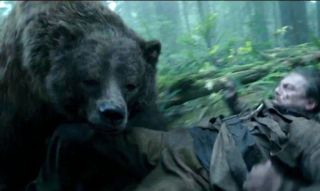
04. Grizzly Bear – The Revenant (2015), ILM
It is hard to forget that mauling of frontier explorer Hugh Glass portrayed by Leonardo DiCaprio, which leads John Knoll who came up with the concept of Rogue One: A Star Wars Story and serves as the Chief Creative Officer for ILM to say, “The bear in The Revenant.”
Making the experience even more visceral and brutal is that the camera does not cutaway though the sound was removed to avoid the scene being too disturbing for audiences. A major reference source was the documentary Grizzly Man (2005) by Werner Herzog as well as testimonials from bear attack survivors.
To get the proper interaction stuntman Glenn Ennis wore a massive blue colour bear suit with a mock head to get the right height. The real difficulty was getting the proper mix of blood and wetness into the fur which was made extremely complicated by the close proximity of the camera.
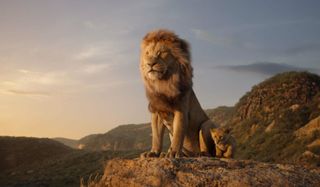
05. The Lion King (2019), MPC
Walt Disney Studios has taken advantage of their library of animated classics and adapt them into live-action features. The line between animation and live-action gets blurred when Jon Favreau decided to implement a virtual production methodology that saw photorealistic digital wildlife captured within the computer using onset cinematography principles grounded by physics.
Even though he won an Oscar for his visual effects work and collaboration with Favreau on The Jungle Book, Robert Legato is proud with what was achieved with their follow-up effort which garnered an Academy Award nomination.
He says: “The Lion King stands out, a project I had the privilege to be part of, though not directly involved in the masterful animation work by Andy Jones and the MPC animators. The phenomenal work of MPC in their rendering techniques – specifically, their advanced shaders for fur and detailed attention to movement and musculature – set a new benchmark in the realism of CGI animals. This achievement surpasses or matches the best of what I have seen in the industry, making The Lion King my personal favourite for CGI animals.”
The phenomenal work of MPC in their rendering techniques set a new benchmark in the realism of CGI animals.
Robert Legato, VFX supervisor and director
Legato would not get any argument from Sara Bennett who is also an Oscar winner for her contributions on Ex Machina and is the co-founder of Milk VFX; she finds herself drawn to the antagonist voiced by Chiwetel Ejiofor who aptly follows in the footsteps of Jeremy Irons in being able to ooze villainy and treachery.
“There are so many to choose from, but I would have to go with Scar from The Lion King. Firstly, Scar’s design has the same familiarity as his character from the original animated film but has added details of realism. His facial expressions, fur texture, and body movements are all beautifully crafted and show you his sinister personality and cunning intelligence. The animation really captures the nuances of his personality, from feeling sly to menacing, both in the facial animation and overall movement and poses, which get communicated brilliantly to the audience.”
Feel inspired? Why not grab one of the best drawing tablets, a laptop for drawing and start creating your own CG animals and creatures? If you need more incentive, read our feature on the best VFX films of the 1980s to see where it all began.
